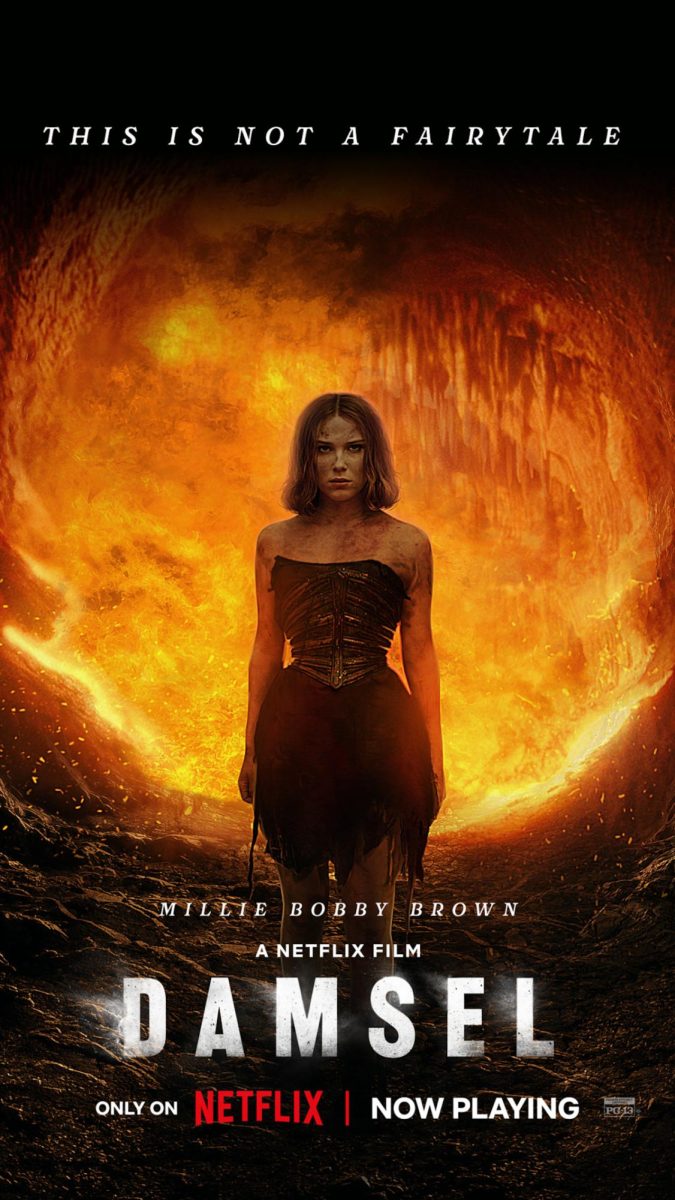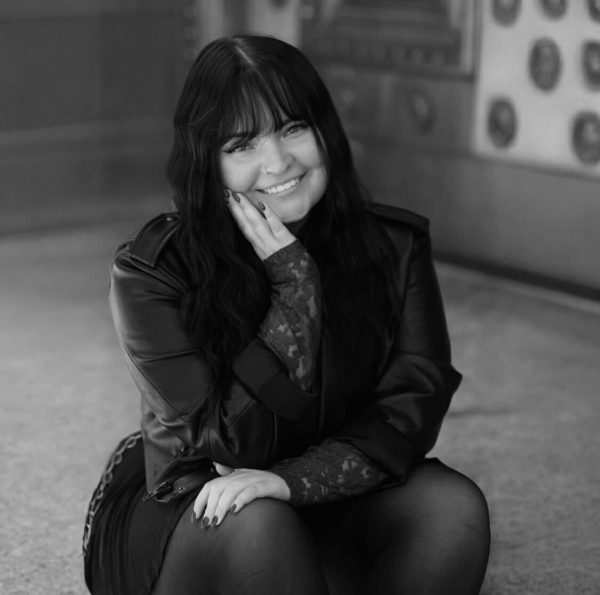“Damsel” is not a fairytale, which may be shocking given the fantastical nature of the trailers that preceded the film’s release on March 8, 2024. In an unexpected turn of events, the Netflix production directed by Juan Carlos Fresnadillo and penned by Dan Mazeau has turned the traditional definition of a “fairytale” on its head. Elodie, played by actress Millie Bobby Brown, turns the overdone notion of a damsel in distress and a princely rescue into a riveting tale of heroic fortitude and empowerment.
At first glance, the film forms a picture-perfect fantasy world, brimming with the promise of light. Young Elodie agrees to marry a handsome prince to provide much-needed aid to her people. However, after she says “I do,” she is plunged into a bottomless darkness. Those two words, which generally connotate a promise of love and devotion, seal Elodie’s fate as she becomes a pawn in her newfound in-laws’ scheme to repay an ancient debt. She is launched into a cave and forced to use her wits in unimaginable ways as she faces a sinister game of hide and seek, a fire-breathing dragon and absolutely nothing to lose — except maybe her life.
Distressed by Technical Difficulties
There is an exponential amount of talent surrounding this film. Although the storyline remains a wonderful modern twist on a classic motif, and Brown’s bewitching portrayal of the protagonist is undeniable, there were fragments of the film that, regrettably, did not hit the mark.
Ray Winstone, cast as Elodie’s father Lord Bayford, who famously proved his acting ability in the cinematic masterpiece “Sexy Beast,” was unfortunately plagued with a minimal amount of screen time. The supposed paternal bond he shared with Brown’s character has fallen victim to speculation as the connection does not resonate between the two. Other members of the cast like actress Robin Wright, who has been seen on the big screen in other blockbusters such as “Forrest Gump” and “The Princess Bride,” were potentially the most neglected as some of their lines felt predictable.
Despite a significant lack of substance in the script, the mythical world of “Damsel” surfaced more completely in the cinematic elements. The special effects, rendered by visual effects supervisor Nigel Denton-Howes and production designer Patrick Tatopoulos, used a mixture of green screens and computer-generated imagery to envelop both the cast and the viewers in a world of mythical horror.
The film’s featured beast, voiced by Shohreh Aghdashloo, appears dragon-like in its reptilian physicality, but its movement and mannerisms read as feline. This unique take on a classic dragon sits right on par with the film’s intentions to take the dominant elements of classic fantasy and modernize them to create something the world has never seen.
Saved by the Story
Regardless of the controversial nature of the film’s technical aspects, “Damsel” has created a story that depicts an inspiring journey to redemption. A young girl comes face to face with her worst nightmares and finds the strength to cast them out while simultaneously discovering the heroine that lives within her. The strength and valor amid endless obstacles that Brown portrays through Elodie is most definitely worth the watch, regardless of the finesse the film lacks.
“Damsel” climbed the ranks and made its way onto Netflix’s Top 10 most-watched list, sitting comfortably at No. 8 as of April 1. The film modernizes the classical nature of a fairytale by experimenting with a female heroine which is a stark differentiation from the thematic element of princely rescue that fills the genre, which is why it has been made clear that “Damsel” was never a fairytale to begin with.




Megan McLaughlin • Apr 10, 2024 at 12:01 pm
this makes me want to watch AMAZING job Jordan!!!